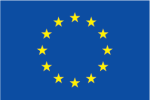So far, four different cases are available: one on plagiarism, one on collaboration and two on collection and analysis of data. The cases are based on the research performed in the INTEGRITY project on what integrity dilemmas, students commonly face. In combination with the build-in library of central concepts, they are designed to give the user basic knowledge on rules and requirements, but also to put students in situations where the rules may not apply in a clear way. This invites reflection and discussion among users and gives them some of the tools needed to handle not only cases of clear-cut misconduct, but also tricky cases, where students are most often in doubt: How do you handle free-riders in group projects? Is it ok to get help from friends or family on assignments? What is the correct way to paraphrase a text book in your own work?
Integrity Games is designed as a highly flexible tool to be used in a wide range of teaching situations. Students can either use the tool at home as part of their individual preparation or they can play through the cases in groups during class. Each individual dilemma can also be accessed directly without the narrative structure and used for shorter in-class discussions or a welcome break in a lecture. More suggestions on how to use the tool can be found in the teacher manual: https://integgame.eu/forTeachers. Here, you can also find a guided video introduction to the tool.


Leave a Reply